Apologizing to a colleague can sometimes feel daunting, but it's essential for maintaining healthy work relationships. Whether you've missed a deadline or unintentionally stepped on their toes during a project, expressing genuine remorse can go a long way. A well-crafted apology not only acknowledges your mistake but also demonstrates your commitment to teamwork and collaboration. So, let's explore a thoughtful letter template that will help you convey your sentiments effectively and rebuild those bridgesâread on to discover how to craft the perfect apology!

Acknowledgment of the Issue
Acknowledgment of an issue in a professional setting can foster a stronger working relationship. A clear recognition of the problem encourages transparency and accountability. Open dialogue regarding miscommunication, missed deadlines, or misunderstandings enhances collaboration. Specific examples, such as a project deadline on October 15, can illustrate the gravity of the situation. Addressing the colleague's concerns directly, focusing on how actions may have impacted their workload, builds mutual respect. Demonstrating understanding of the potential effects, like increased stress or negative impacts on the team's progress, reinforces a commitment to improvement and teamwork.
Personal Responsibility
In a professional environment, taking personal responsibility for mistakes is crucial. An apology can help restore trust among colleagues after miscommunication or errors. Acknowledging missteps demonstrates accountability and encourages a positive workplace culture. Effective apologies include specifics about the incident, recognition of its impact on the team or project, and commitment to remedial actions. Situations like missed deadlines, incorrect information sharing, or oversights in collaborative projects can create challenges. Following up on the apology with tangible improvements can reinforce sincerity and strengthen relationships in the workplace.
Expression of Regret
A well-crafted apology can foster an environment of understanding and respect in the workplace. An expression of regret should acknowledge the specific actions or words causing distress, reinforcing the value of the colleague's feelings. An effective apology includes a sincere acknowledgment of any impact caused, offering assurance that it was not the intended outcome. Additionally, suggesting a willingness to make amends through constructive discussion demonstrates commitment to maintaining a professional relationship. Taking responsibility is crucial, as it promotes a culture of accountability and trust within the team. Follow-up actions are equally important, ensuring the colleague feels heard and understood beyond the initial apology.
Commitment to Resolution
In professional environments, commitment to resolution reinforces teamwork and collaboration. Acknowledgment of mistakes fosters trust among colleagues, allowing for transparent communication. Specific examples, such as missed deadlines or miscommunication on project aspects, highlight the need for accountability. Providing actionable steps demonstrates dedication to improvement, ensuring tasks are completed efficiently moving forward. For instance, scheduling regular check-ins or utilizing project management software can enhance workflow. Expressing sincere appreciation for the colleague's understanding and support emphasizes the importance of maintaining positive workplace relationships, promoting a culture of respect and cooperation.
Future Improvement Plan
A Future Improvement Plan outlines strategies to enhance workplace relationships and communication among colleagues. It focuses on identifying key areas such as conflict resolution skills, active listening techniques, and effective feedback mechanisms. Training sessions may be scheduled quarterly, with invited experts from the American Management Association. Regular check-ins (every two weeks) can facilitate open discussions about workplace dynamics, fostering a culture of support. Collaborative team-building activities may also be planned, aimed at strengthening interpersonal bonds and understanding each other's strengths and weaknesses. This plan emphasizes accountability and encourages proactive engagement to ensure a harmonious and productive work environment.

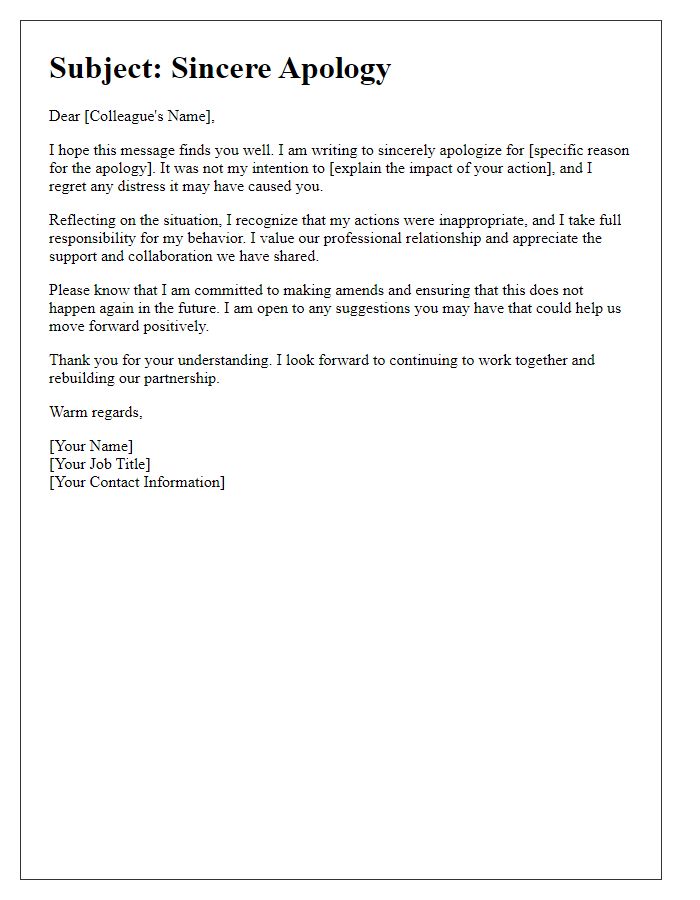
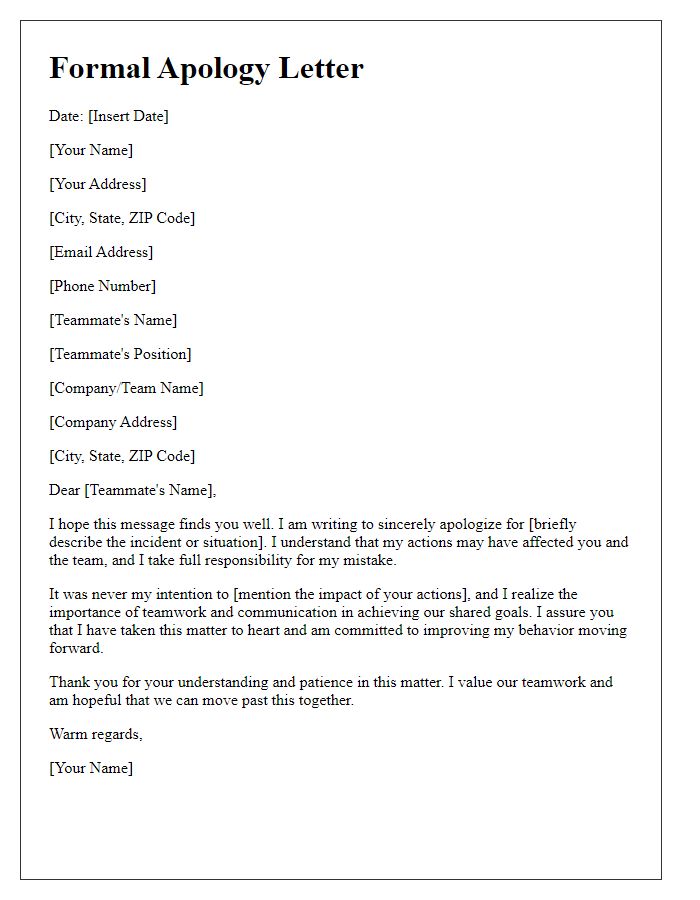
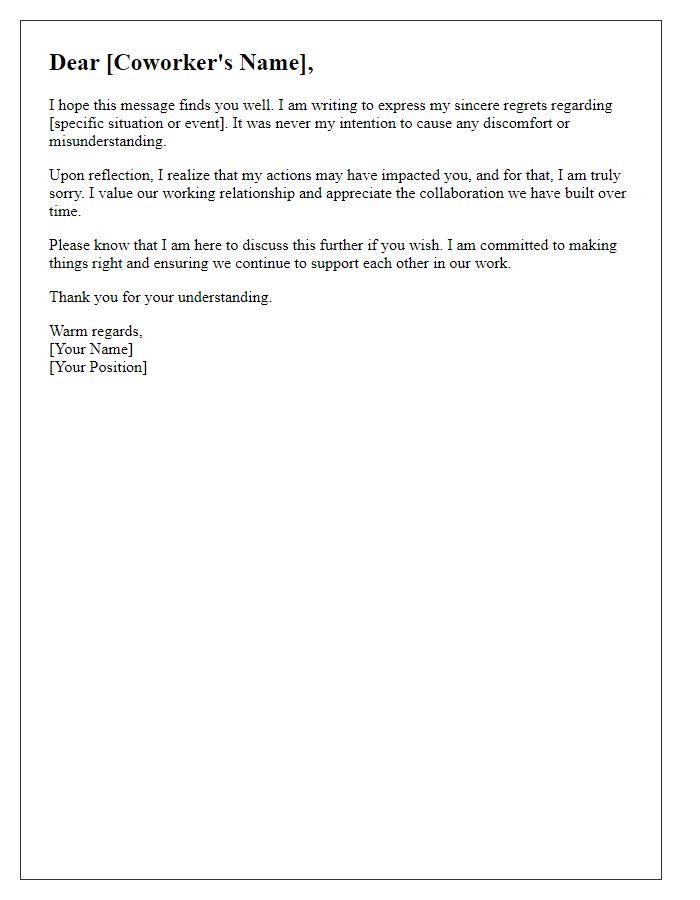
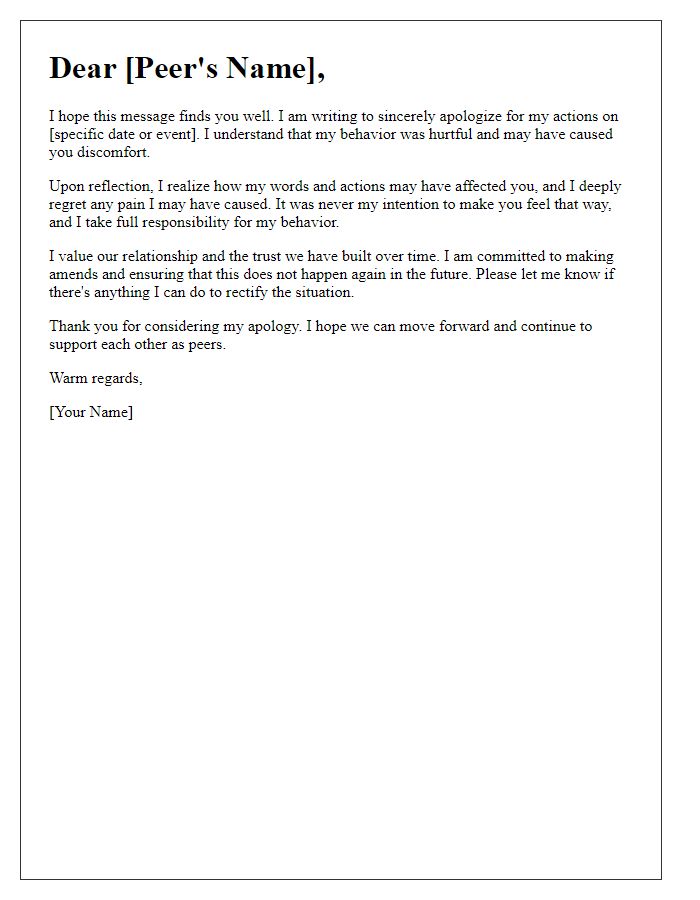
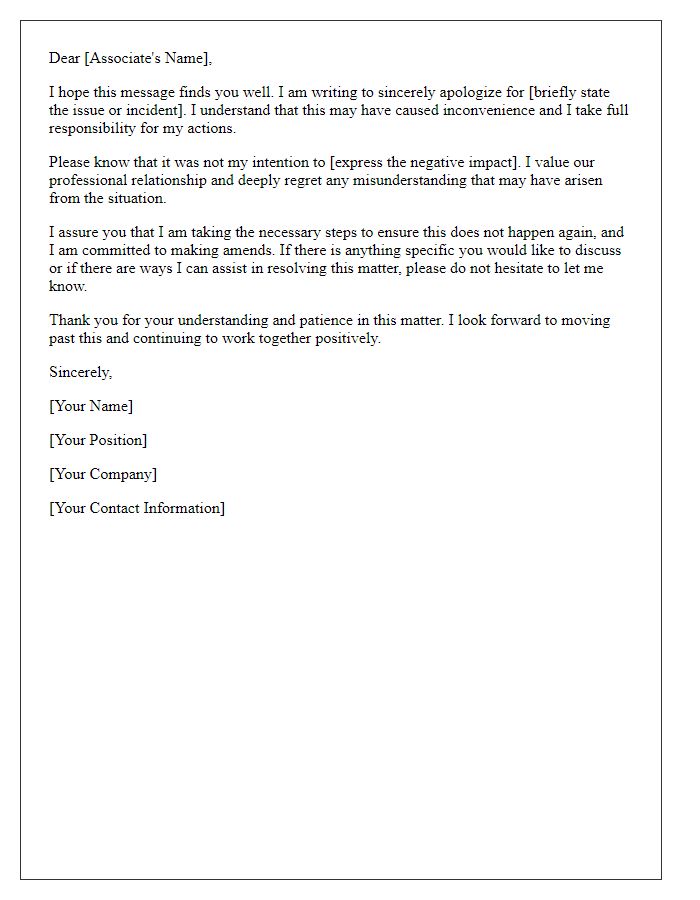
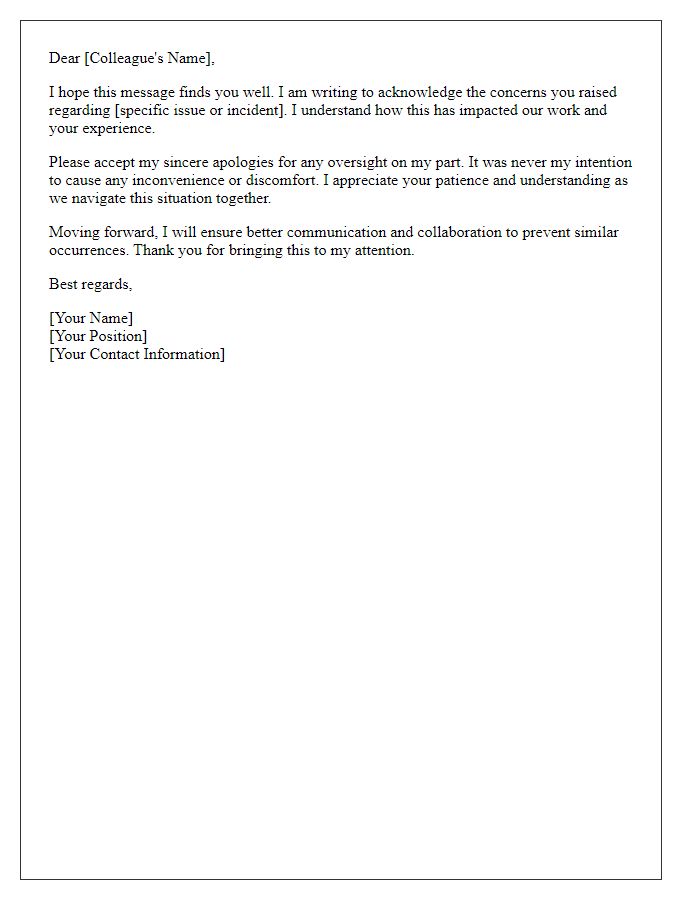
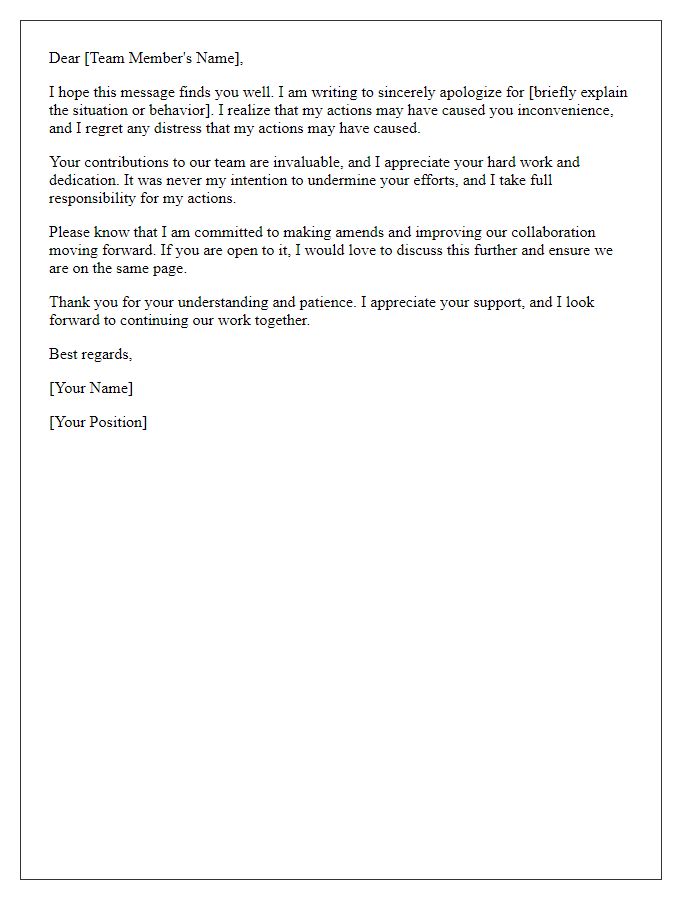
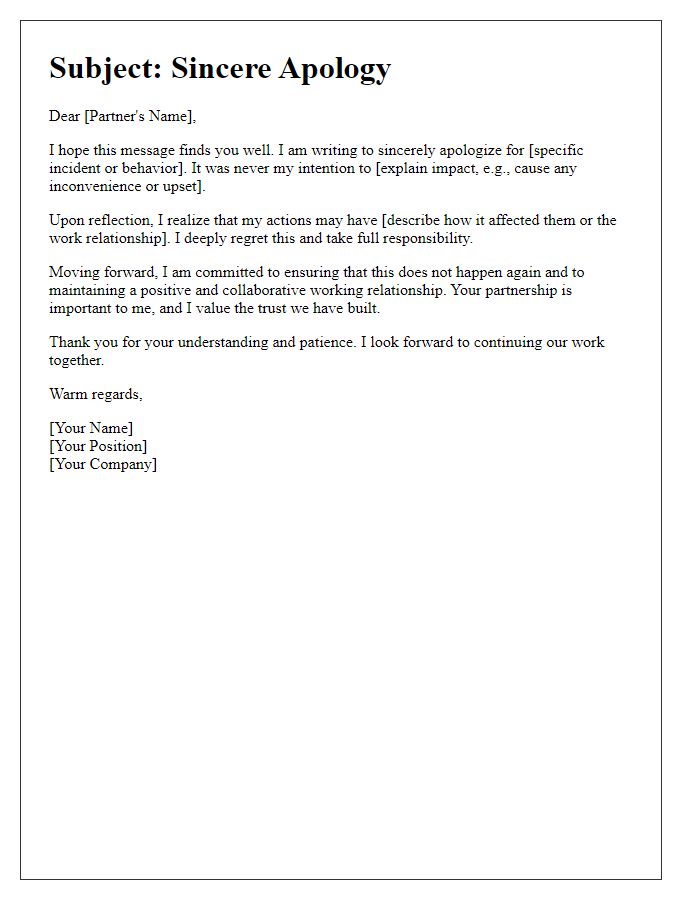
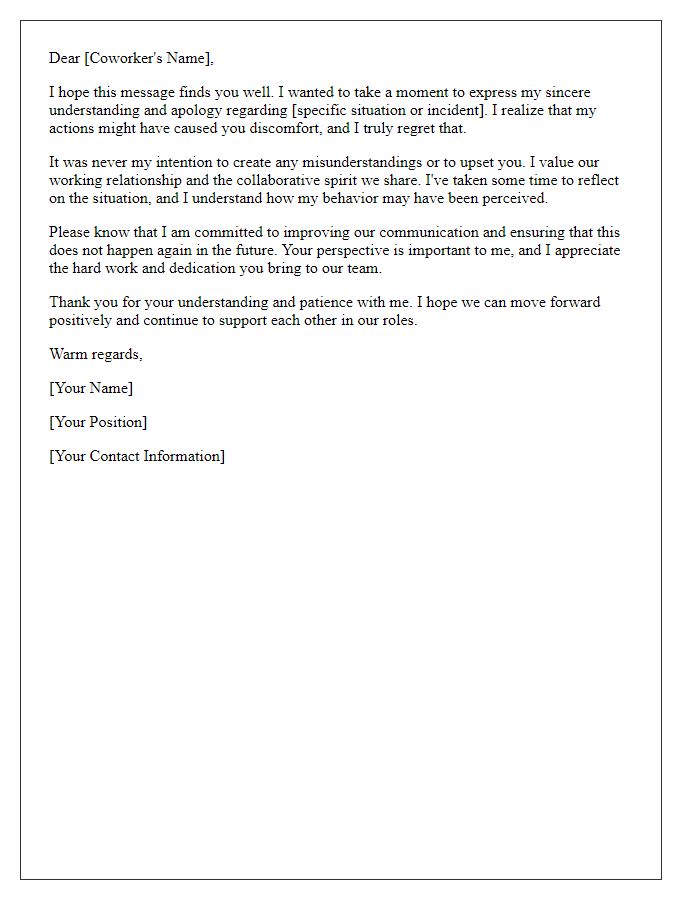
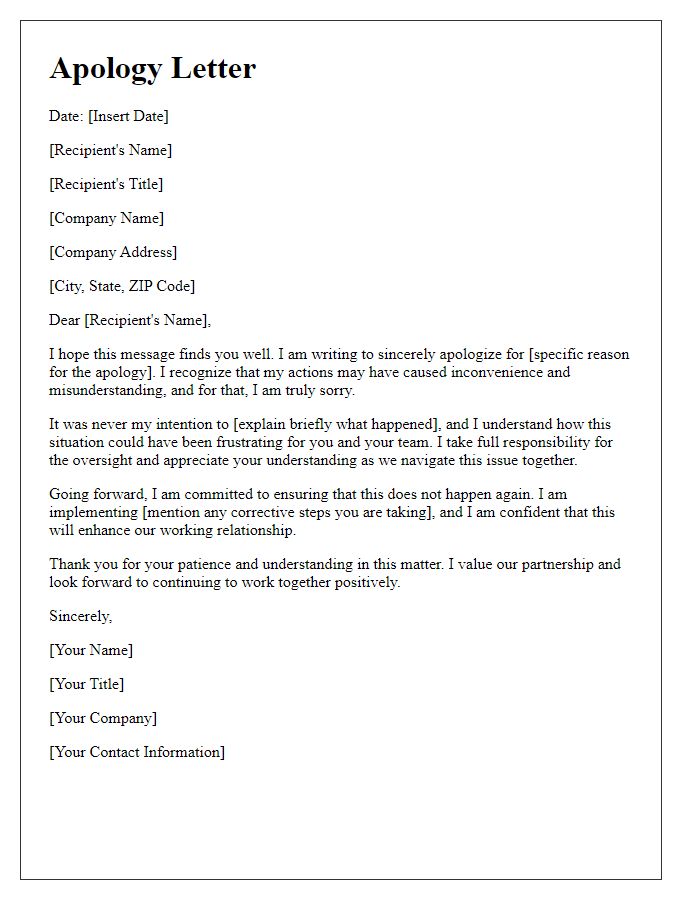


Comments